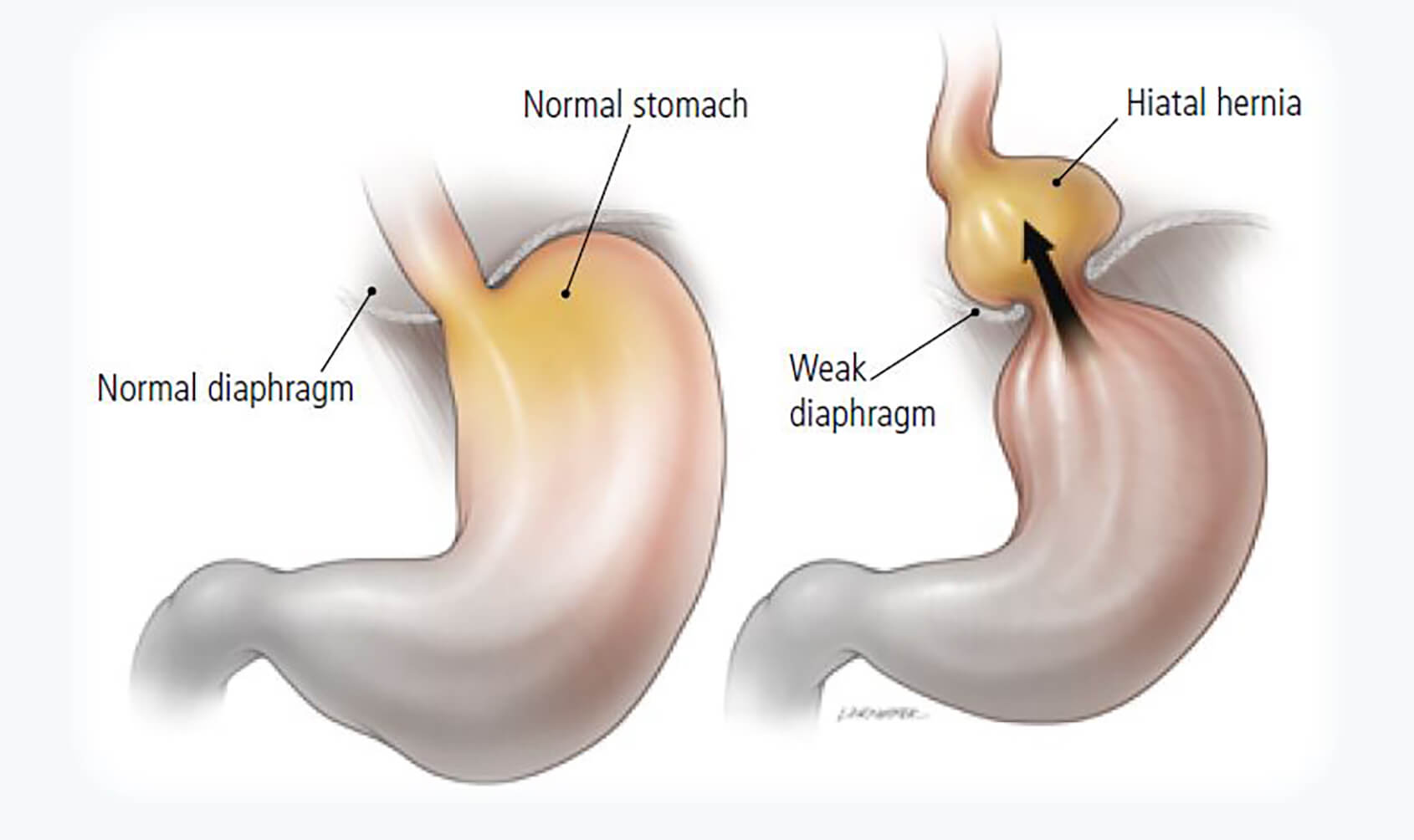Understanding Hiatal Hernia
A hiatal hernia occurs when a part of your stomach pushes up through the diaphragm, the muscle that separates your chest from your abdomen. The diaphragm has a small opening called the hiatus, through which the esophagus passes before connecting to the stomach. In the case of a hiatal hernia treatment, the stomach pushes through this opening and into the chest cavity, which can cause discomfort and other symptoms.
Symptoms and Causes
The symptoms of a hiatal hernia can vary depending on the size of the hernia. Small hernias often cause no symptoms and may only be discovered during tests for other conditions. However, larger hiatal hernias can lead to problems such as heartburn, regurgitation of food or liquids into the mouth, difficulty swallowing, chest or abdominal pain, and shortness of breath.
The causes of a hiatal hernia are not always clear, but certain factors may contribute, including age, obesity, smoking, and physical exertion. The weakening of the diaphragm with age or injury, or increased pressure in the abdomen from heavy lifting, coughing, or straining during bowel movements, can also lead to the development of a hiatal hernia.

Treatment Options for Hiatal Hernia
Lifestyle Modifications
For many people with a hiatal hernia, simple lifestyle changes can significantly reduce symptoms. These changes might include:
- Eating smaller meals: Consuming smaller, more frequent meals can help prevent the stomach from becoming overly full and putting pressure on the hiatus.
- Avoiding trigger foods: Spicy foods, acidic foods, and caffeine can exacerbate symptoms of acid reflux associated with a hiatal hernia.
- Elevating the head while sleeping: This can prevent stomach acid from flowing back into the esophagus during sleep.
- Maintaining a healthy weight: Reducing abdominal pressure through weight loss can alleviate some of the symptoms.
Medications
If lifestyle changes are not enough to control symptoms, your doctor might recommend medications to reduce stomach acid, such as antacids, H2 receptor blockers, or proton pump inhibitors. These medications can help to manage symptoms but do not address the underlying hernia.
Surgical Options
In more severe cases, where symptoms are persistent and not relieved by lifestyle changes or medication, surgery might be necessary. Surgical options include:
- Nissen fundoplication: This procedure involves wrapping the top part of the stomach around the lower esophagus to strengthen the valve between the esophagus and stomach, preventing acid reflux and repairing the hiatal hernia.
- Laparoscopic surgery: A less invasive surgical option, where small incisions are made, and the hernia is pulled back into the abdomen. The diaphragm opening is then tightened to prevent the hernia from reoccurring.
Prevention and Management
While you may not be able to prevent a hiatal hernia entirely, especially if you are predisposed due to factors such as age or genetics, there are steps you can take to manage the symptoms and reduce the likelihood of complications:
- Regular exercise: Engage in moderate physical activity to maintain a healthy weight and strengthen your diaphragm muscles.
- Avoid heavy lifting: If lifting is necessary, ensure you do it correctly by bending your knees and keeping your back straight to avoid putting pressure on your abdomen.
- Quit smoking: Smoking weakens the diaphragm and can exacerbate the symptoms of a hiatal hernia.
Conclusion
A hiatal hernia can be a manageable condition with the right approach. While some people may find relief through simple lifestyle changes and medications, others may require surgical intervention to correct the hernia and prevent further complications. It is essential to consult with your healthcare provider to determine the most appropriate treatment plan based on the severity of your symptoms and your overall health.
If you suspect you might have a hiatal hernia or are experiencing symptoms such as persistent heartburn or difficulty swallowing, don’t hesitate to contact us for a consultation. Early diagnosis and treatment can help you find relief and prevent further discomfort.